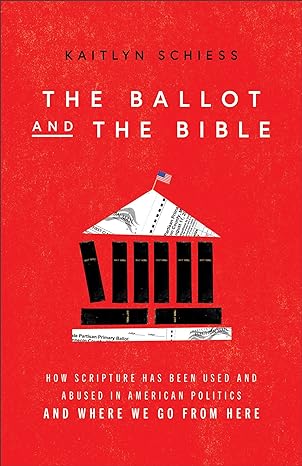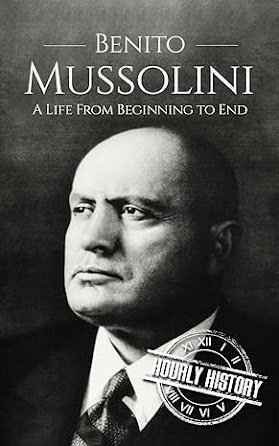RIPPLES of BATTLE: HOW WARS of the PAST STILL DETERMINE HOW WE FIGHT, HOW WE LIVE, and HOW WE THINK by Victor Davis Hanson
Excellent and Quite Enjoyable.
Originally published in 2003 by Doubleday
We all understand that wars can profoundly change the world. History is full of wars that brought giant transformations, such as Alexander's conquest of Persia (and just about everything else he saw) and the spread of Hellenistic culture, the Spanish conquistadors in Mexico and Peru and the Cold War stand off that shaped the world after World War II. If you have ever heard the phrase "In a post-9/11 world..." that tells you that the world has been changed by the War on Terror.
The simple idea behind Ripples of Battle is that it's not just wars but oftentimes single battles that change things. And, sometimes, it's not the battle that everyone knows, but a lesser-known battle that causes the most change. He uses the familiar image of a rock tossed into a lake with the outgoing ripples from the point of impact being the change. And, he does a pretty thorough job of showing that these ripples can go on and on for a very long time.
Hanson uses three battles in his formal discussion: Okinawa in World War II (April 1-July 2, 1945, Shiloh in the American Civil War (April 6-7, 1862) and Delium in the Peloponnesian War (November, 424 B.C.). He also draws similar conclusions about the 9/11 attacks in his introduction and epilogue.
Okinawa
 |
| Damage to the flight deck of the USS Bunker Hill by a kamikaze near Okinawa on May 11, 1945. |
He begins with Okinawa in World War II. In many ways this is personal because his father's cousin and undoubtedly the author's namesake, Victor Hanson, was killed in battle at Okinawa. This was the first battle on an island that was truly considered to be Japanese and the Americans needed it to continue their aerial assault on the Japanese main islands. The 110,000 Japanese soldiers on the island were dug in and determined to make the conquest of the island so difficult that the Americans would be convinced that an invasion of the rest of Japan would be impossible.
The Americans came with an initial invasion force bigger than that used in Normandy the year before with 1,600 ships and 500,000 American fighting men and the potential use of up to 12,000 combat aircraft. These Americans fought against kamikaze aircraft attacks (a harbinger of the suicide bomber and the 9/11 attacks) and against foot soldiers that were ordered to fight to the death, no matter how terrible the odds. The Americans responded with the flamethrower (literally burning out Japanese defensive positions) and by bombing kamikaze airbases before they could even get the planes in the air. Cold and calculating military measures that were effective and preserved American lives.
And, in the end, they came to the conclusion that the Japanese wanted them to reach - the Japanese main islands could not be conquered by traditional means. So, they decided to use nuclear weapons instead. A cold and calculated measure to preserve American lives. A ripple generated by this battle is the belief that America ought to come at its enemies with unimaginable military force to overwhelm them and prevent long, ugly battles like Okinawa. We tried to bomb North Vietnam into submission (with quantity strikes rather than quality strikes), we called the start of the Iraq War "Shock and Awe" in order to demonstrate we could hit our enemies where we wanted when we wanted.
Shiloh
The second battle is Shiloh. This is my favorite section of the book because I am a giant student of the Civil War. Hanson has not written much on the Civil War, which is too bad because he has an amazing grasp on the issues and personalities of the war.
Shiloh begins with a sneak attack on Ulysses S. Grant's army camped at Pittsburg Landing on the Tennessee River, a few miles north of the Tennessee-Mississippi state line on April 6. For months, Grant and Don Carlos Buell had been defeating and out-maneuvering Confederate armies and had pushed through Kentucky and almost through Tennessee. Buell and Grant were poised to combine their separate armies and there was no way that the combined Confederate defenders could stop it. So, they combined without anyone's knowledge and, using a P.G.T. Beauregard plan and led by Albert Sidney Johnston, they completely surprised Grant's army before Buell could arrive.
On paper, it was a master stroke and for the first few hours it looked to be a complete victory. It would have been but for the rise of William Tecumseh Sherman. Before Shiloh Sherman was largely discredited (he'd had a mental breakdown) and he bears more blame than most for the success of the sneak attack itself. But, he rallied the men, calmly rallying them and turning a rout into an orderly retreat. In the melee he was shot through the hand, he had multiple horses shot out from under him and his coat was riddled with bullet holes. When Grant met up with him during the battle he realized that Sherman had things well in hand (as well as they could be, in any case) and focused on other areas of the field.
This is the moment that Sherman became Sherman - the general that became Grant's trusted second for the rest of the war. It is also the last large-scale pitched battle that Sherman fought in, a fact that I had not realized until Hanson pointed it out. When Sherman fought on his own in the Atlanta campaign and the March to the Sea he avoided the large pitched battle in favor of maneuvering his opponent out of position and forcing a retreat. Not that there was no fighting, but there were no more Shilohs. For Sherman, the war would not be won when the South's armies were vanquished but when it's ability to maintain those armies was destroyed. He invented total war on a large scale and he gutted the Confederacy while hardly losing a soldier, especially when compared to the battles that Grant was waging against Lee in Virginia.
It is also the moment when Albert Sidney Johnston died and the Myth of the Lost Cause came to life (within days of the battle). Whether Johnston would have been able to lead the Confederates to victory in the West is a subject to debate. Johnston's skills as a leader are unclear based on what he achieved before he died. He lost giant chunks of the West and any chance to have Kentucky join the Confederacy due to poor initial troop placements. His skill at making his orders clear in battle was excellent but could the Confederates have overwhelmed Grant's men if Johnston had lived?
 |
| Confederate General Nathan Bedford Forrest (1821-1877) |
One Confederate general who comes into his own in this battle is Nathan Bedford Forrest - arguably the South's foremost cavalry man. He was truly a self-taught talent. This battle made his reputation, especially his famed escape after being the last man to be wounded after the battle. His reputation as a scrapper and master of guerrilla war tactics served him well as the first leader of the Ku Klux Klan after the war. He was probably the only man with the enough stature, enough venom and enough anger to have led that Klan to any level of success.
Perhaps most interesting is the case of Lew Wallace, the general who arrived late with the Union reinforcements and paid for it (unfairly, in his mind) with his career. But, he used that sense of being wronged as an inspiration to write Ben-Hur, the story of a man who is wrongly accused and loses everything. Ben-Hur was a publishing phenomenon, much like Harry Potter and Twilight have been nowadays. But, this one was one of the first.
Delium
You have probably never heard of Delium. I know I did not know it by name. I knew of two things that happened at the battle before I read this book, but I did not know the name of the battle itself. I knew that Socrates had almost been killed in a battle but was saved by Alcibiades. And, I knew that Athens lost that same battle.
This battle was part of the Peloponnessian War - the war between Athens and its allies and Sparta and its allies that lasted almost thirty years. Fifty thousand men fought in it, but no great generals were involved. No Spartans were involved. Instead, this was a sloppy attempt by Athens to defeat a confederation of city states under the leadership of Thebes so that Athens could focus on its more powerful enemies in Sparta.
But, in this battle Socrates lived, rather than died. Alcibiades made his reputation and the birth of Western battle tactics may have been born.
Hanson ends with the discussion of tactics, but it is almost an afterthought to the chapter. In this battle, the army that faced the Athenians was considered to be the equivalent of Ancient Greek rustics - unrefined and definitely not the equal of the Athenians in culture. But, in this battle they did more than the traditional giant scrum match of interlocking shields that made up most hoplite battles. Instead, the held troops in reserve and moved them around during the battle. Basics to us, nowadays, but revolutionary at the time.
 |
| Socrates (470/469-399 B.C.) |
This change in tactics caused the Athenian line to crumble. Socrates was in that line and he nearly died. Pre-Delium Socratic thought was not the philosophy that he is famous for. His best work came after this brush with death and it is that thought that inspired Plato and through Plato inspired Aristotle. What would Western thought have been without Socrates, Plato and Aristotle?
Alcibiades made his reputation as a cavalry officer in this battle. He was already marked to be a future leader of Athens. His beauty, his attitude, his intelligence and his ability to sway the crowd guaranteed that. But, this battle thrust him to the forefront. If only he had died...
Alcibiades' career defies explanation. He conceived of and led the Athenian attack on Sicily, widely considered to have been a military disaster of the first order for Athens. However, he defected to Sparta rather than face a tribunal in Athens for defacing religious statues. He led Spartan troops against Athens and was successful until he fled Sparta (he had an affair with the king's wife) and joined with the traditional enemy of the Greeks, the Persians. After advising the Persians, he went back to Athens and served as a highly successful military leader, then went back to the Persians and was then assassinated.
Of the three battles, this chapter is the one in most need of a bit of editing, in my opinion. It goes on a little too long, but that is to be expected - Ancient Greece is Hanson's bread and butter.
So, does Hanson prove his point with these three battles? Of course he does. But, he does more than that. He tells three interesting stories of history and demonstrates that no action has occurs in an historical vacuum, especially not battles because so much rides on the outcomes and the sheer chance and chaos of it all.
I rate this book 5 stars out of 5. This book can be found on Amazon.com here: RIPPLES of BATTLE: HOW WARS of the PAST STILL DETERMINE HOW WE FIGHT, HOW WE LIVE, and HOW WE THINK by Victor Davis Hanson.
Reviewed on July 4, 2014.











Comments
Post a Comment